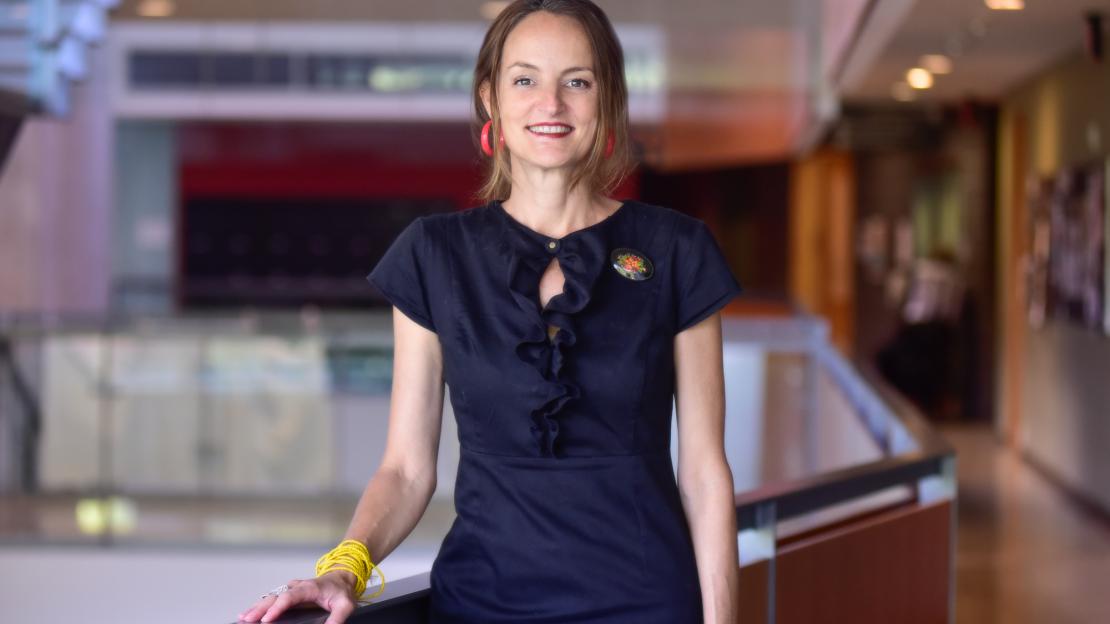During the 1960s, education programs were launched under newly established diplomatic ties between Ethiopia and Romania. Yet, little is known about the social and political lives of Ethiopian university students.
A new project is set to figure that out.
RedED Africa is a pioneering project co-lead by Laura Bisaillon, assistant professor of health and society studies at U of T Scarborough, along with Professor Lorena Anton from the University of Bucharest.
In 2018, Bisaillon was awarded a Visiting Professorship at the University of Bucharest, and with support from the International Research Collaboration Fund the team began archival fieldwork into the history of relations between Ethiopia and Romania in the 70s and 80s.
The root of the project is how Ethiopian students in Romania lived their intellectual and political lives as socialist subjects. So far, the team has explored the University of Bucharest archives and have had informal discussions with various academics and administrators involved in education policy.
“We’re looking for people who were active, or could help us to find people who were active in their professional life in the two countries during that time,” says Bisaillon.
She points to the experiences of UTSC Principal Wisdom Tettey as an example. While he grew up in Ghana and studied in the USSR, his experience is illustrative of student experiences during this period of Cold War history connecting the USSR, Eastern Europe and sub-Saharan Africa.
Unpacking history
After the Second World War, the then Ethiopian monarch’s diplomatic work strengthened relations with Romania, but in 1975, his regime was overthrown. The military gained power, adapting a communist government model, and developed strategic alliances with Eastern European countries –– then under the Soviet Union.
“Romania was interested in Ethiopia because they needed a market for their goods, which were less popular in the west,” says Bisaillon. “They needed a market and they also needed primary resources to be able to produce the goods that they then sold in African and non-aligned countries elsewhere.”
Education programs between socialist states and the Horn of Africa were also established, which saw African students go to Eastern European countries for higher education.
Bisaillon and Anton – who both have extensive experience researching the lived consequences of state policy, regulation and law – are interested in two specific factors that would have shaped the lives of African students. The first is Romania’s reproductive policies from 1962 to 1989, among them, outlawing abortion and preventing access to contraception.
Research into the scope of surveillance and practices of the Romanian government on women’s bodies and of foreigners in the country have been found through accessible secret service and Radio Free Europe reports.
“They reveal that what was happening was heightened surveillance of foreigners and the active discouragement of people having relationships with foreigners, all the while having this idea of socialist solidarity,” she says.
Another factor for leaving the country itself could have also been an obvious one –– expiring student visas. Bisaillon also says that the idea behind these university programs was for students to return to benefit their home countries.
Also involved in the project are two U of T Scarborough librarians and an alumnus, Bisaillon’s former student. The research team will continue archival work in Ethiopia and Romania, and continue to search for information on what students’ lives were like.
Their Facebook page, ‘Scholarly Socialisms,’ acts as a meeting place for academics and others from around the world who share interest in the histories between the Horn of Africa and Eastern Europe to network and grow the project.
